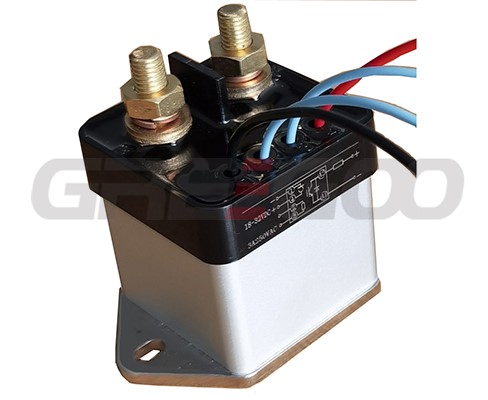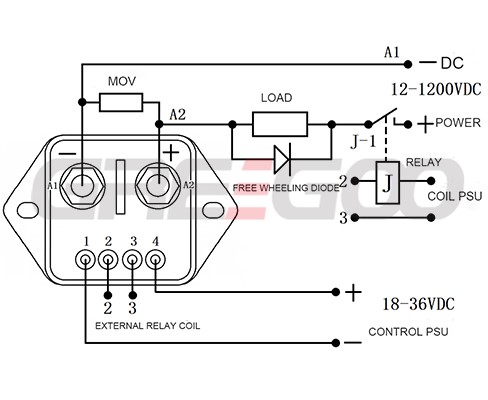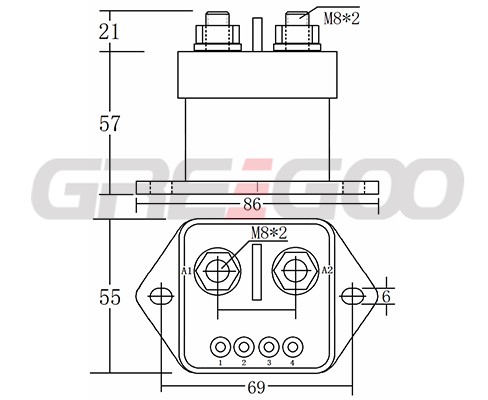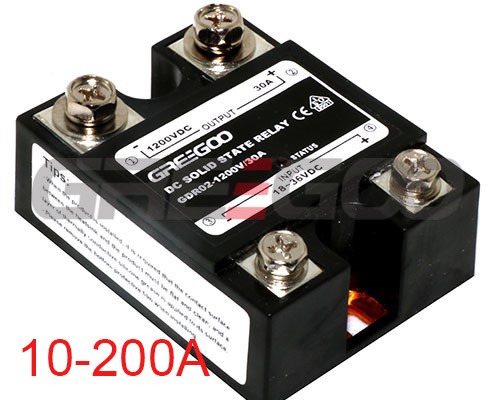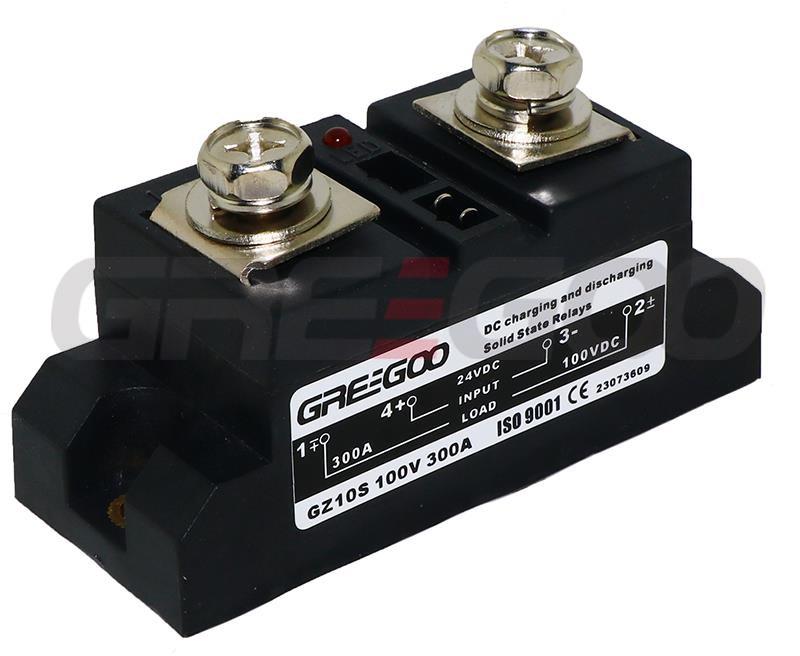Automotive DC Solid State Switch
Home Products DC to DC Solid State RelayAutomotive Solid State RelayAutomotive DC Solid State Switch
Product Details
Automotive DC Solid State Switch
- Opto-magnetic isolation between the control signal and the output circuit.
- LED indicates the working status.
- Solid-state contactless output, fast switching speed, no sparks or arcing during switching.
- Built-in over-temperature, over-current, short-circuit protection and output transient over-voltage absorption protection.
- The metal shell and flame-retardant material are integrated to provide fire resistance, corrosion resistance, and seismic durability, ensuring stable and reliable switching.
- The product is mainly used in new energy vehicles for medium to high power DC electrical appliances, such as PTC heaters, battery and capacitor charging and discharging, solenoid valves, motors, and other switches.
Specification
| Part Numbers | GQZ09 |
|---|---|
| Control Voltage | 12 to 15VDC or 18 to 28VDC |
| Control Current | 80 to 90mA or 60 to 80mA |
| Control Indication | LED indicator display |
| Switching Time | ≤0.15ms |
| Load Voltage | 5 to 60V, 6 to 120V, 10 to 360V, 20 to 720V |
| Maximum Current | 30A, 50A, 60A, 80A, 100A, 120A, 150A, 180A, 200A |
| On-state Voltage Drop | 1.0 to 4.2 VDC |
| Off-state Voltage | 100V, 200V, 600V, 1200V |
| Transient Voltage Protection | 80V, 180V, 480V, 1000V |
| Overcurrent Protection | None-standard type; L: Output current reduced by 50%; Z: Output current at 100% |
| Main Switch Attributes | MOS or IGBT transistors with solid-state contactless on/off characteristics |
| Auxiliary Switch | Temperature control switch or NO-NC contact switch: 1A 220VAC |
| Isolation Voltage | ≥1800 to 2500 V |
| Insulation Voltage | ≥2000 to 2500 V |
| Operating Temperature | -30 to 80 ℃ |
| Cooling Conditions | Equipped with a heat sink and fan for enhanced cooling |
| Load Current Safety Factor | Resistive load: factor of 2.5 to 3 times, Inductive load: factor of 3 to 4 times of rated current |
| Dimensions | 86×55×78mm |
Notes while using
- The parameters provided in the datasheet are measured at standard temperature (25°C). When operating in actual conditions, a safety margin should be considered.
- For resistive loads:
- Current: Select 2 to 3 times the load current.
- Voltage: Select 2 to 3 times the load voltage.
- For inductive loads:
- Current: Select 3 to 4 times the load current.
- Voltage: Select 2 to 3 times the load voltage.
- Based on the relationship between load current and ambient temperature, if the ambient temperature is high or the cooling conditions are inadequate, the current capacity should be increased or the heat sink area should be enlarged.
- If using a solid-state relay without overcurrent protection, to prevent damage from load short-circuiting, it is required to connect a fast-acting circuit breaker in series with the load circuit or choose solid-state relays with overcurrent (GQZ09L type) or short-circuit (GQZ09Z type) protection.
- For inductive loads, it is necessary to parallel a freewheeling diode across the load terminals or add a varistor at the output end. The varistor should be selected based on 1 to 1.5 times the power supply voltage to prevent damage from overvoltage to the solid-state switch.
- During installation of the solid-state relay, it is necessary that the contact surface between the heat sink and the product is flat and clean, and a layer of thermal grease should be applied. Finally, screws with flat washers and spring washers should be symmetrically tightened to improve thermal conductivity and cooling performance.
Inquiry
Need more information?
Contact us to request pricing, availability and customization options.
Related Products












